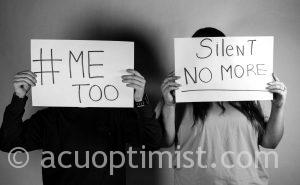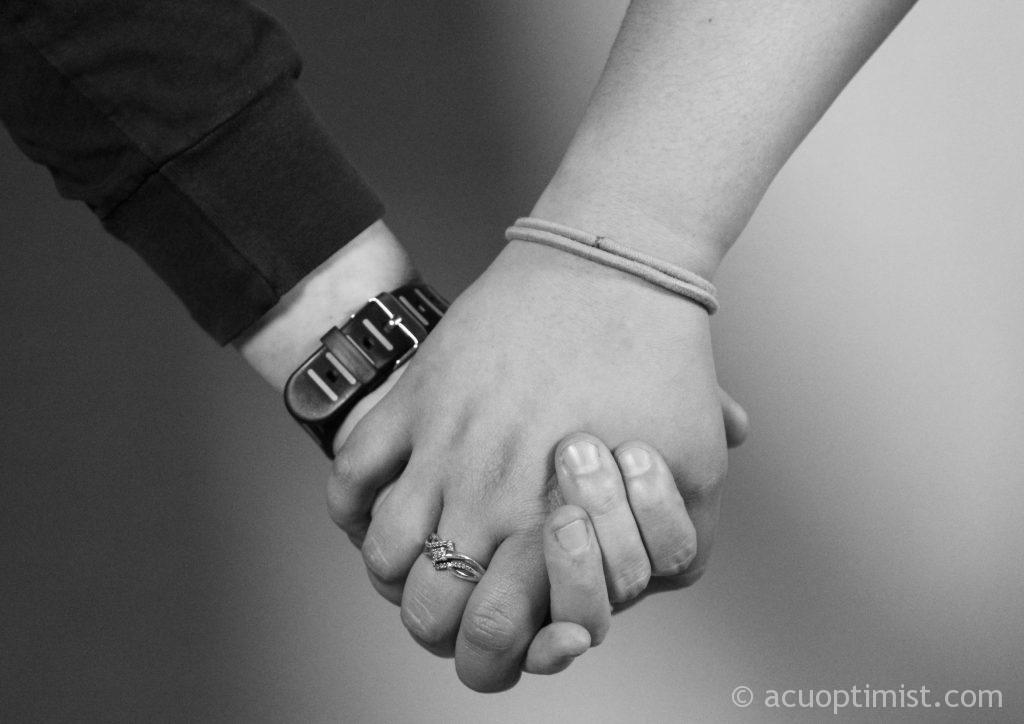In one swift domino effect, self-labeled feminist women and men across the nation are changing the issues masked as normalities surrounding society today. With fear receding from their eyes, victims of sexual assault, silenced women and frustrated advocates are taking their voices to the streets, internet and courts to seek justice for the pain invoked upon them by sexual abusers.
Started by Tarana Burke in 2006, the MeToo movement has begun to break down the barriers of silenced sexual assault victims. Recognized as TIME magazine’s Person of the Year, the “Silence Breakers” have motivated more than 17 million men and women to come out of the shadows and find the confidence to remove themselves from the state of victim to victor – to conquer their identity once again.
Kristina Davis, president of the Junior League of Abilene and director of forensics, said the movement was not created by those categorized as millennials, but rather by the women who first started the Time’s Up campaign: our mothers and grandmothers.
“I wouldn’t say the movement was created by the younger generation because, while [the younger generation] are starting their careers, my generation has already gone through some things that have to do with the movement,” said Davis. “You know, we have the women with the ‘Times Up’ slogan and how they are fed up with the way things are going. Not saying [the younger generation] hasn’t gone through things. I’m sure they have, but my generation has already been in more situations where sexual harassment has occurred.”
Davis said while students seem to live in a presumed bubble, it’s a necessity for students to talk about such issues on campus.
“I’ll give you two reasons why we need to have such talks on campus,” said Davis. “One is that it gives students the chance to speak up and tell their story and so our students can feel space to reveal such details. And two, it’s one of those things people need to be aware of. There are things happening, and we need to be able to talk about them without fear, especially on this campus.”
CBS news reported more than 12 million tweets, posts and comments to the initial MeToo hashtag prompted by actress Alyssa Milano in late October. Since then, the hashtag has become a trending topic in multiple occasions, including the Golden Globe awards this past year. Women like Justice Ruth Bader Ginsburg, Salma Hayek and Oprah Winfrey have outspokenly supported the movement and have become some of its front liners.
“Feminism is one of those words people don’t like to talk a whole lot about,” said Davis. “I call it the other F-word of ACU, and I mean that. Feminism stands for so many other things than just what we normally think about. I used to have a sticker on my car that said ‘feminism is the radical notion that women are people too,’ and that was me. I believe that.”

(Photo by Emily Guajardo)
President of the ACU Feminists Hailey Burden, senior biochemistry major from Abilene, said students are finally more open to talking about such prevalent issues. Burden said the movement is not something separate from the original idea of feminism, rather it is an arm of a much larger movement building up.
“The movement allows people who have been hurt by predators to begin the healing process involved,” said Burden. “I think students are more timid to come out and say something, but through this movement, women are getting a chance to come out and have some bravery.”
While the movement is known more for its hashtag appearance than radical protests, Burden said she hopes the hashtag will prevail and motivate people to get more involved.
“This movement is knocking the lid off this thing,” said Burden. “There are just so many people coming forward and demanding change. With the women’s march last year, that really kicked this off too because you see this bottled up anger, fear and women just fed up with the treatment they have had over their lifetime, and I think this MeToo movement is going to have a lasting impact on our generation for sure.”
From protests to social media proclamations of deliverance, women have felt a sense of bravery to declare their secret of pain and guilt.
Kaila Bellinghausen, senior psychology and social work double major from Amarillo, said the movement has made more people seek guidance from several non-profit crisis centers, including the Regional Victim Crisis Center.
“Based off the media and everything else, more people are coming out with their assaults because they feel like they’re not alone,” said Bellinghausen. “That’s why people are coming out and talking about their teachers, coaches, bosses who have assaulted them because it’s ‘me too, I’ve experienced that, and it’s okay to say it now.’ It’s not so ostracizing anymore. They don’t feel so alone.”
As an intern for the crisis center, Bellinghausen, like most women, personally resonates with what the movement stands for.
“I have personally had experience with dating violence,” said Bellinghausen, “and being able to empathize with them and actually help them and say ‘I understand’ is very important because it helps with the healing process. They know that they’re not alone and that it’s okay to be upset. It’s okay to be mad and not the ones to blame. So, the MeToo movement is great because before it, people were so self-shaming about the trauma and victimization they were enduring. Now, the movement gives us the opportunity to come out and not be alone.”
And alone they are not. From starting out as a Western civilization movement advocating for the healing of sexually assaulted victims, women across the world are hiking up their skirts and raising their voices to be heard, understood and make change happen.
Hillary Pena, senior finance major from Houston, said the movement has not only changed the way people view the word ‘feminism’ around the world, but also how students on campus view the term feminist in general.
“Feminism seems like a bad word on campus,” said Pena. “The MeToo movement is really hand-in-hand with feminism, and there are women on campus who are affected by it, and I think there is a facade in a way that doesn’t allow women to come out and say something. It just seems very ‘hush, hush’ because they don’t want to start political discourse. And that’s not just people telling students, but it’s also students not wanting to say anything.”
With several court cases currently swirling on social media including those of Larry Nassar, Bill Cosby and Harvey Weinstein, Pena said the movement is only just beginning to boil over.
“I feel like this is becoming more popular because of the influence celebrities have over it, but I really think it’s going to take off,” said Pena. “Our generation coming into the workforce will definitely see the difference in wages. We’re irritated now because of sexual harassment, and we still have the glass ceiling to break through. I think, I hope this [movement] continues on forever, and I hope this phases and changes into something better.”
While some feminists find the movement as a “hoorah” of victory against violators, others see the movement as a way to educate each other on what is acceptable and what is not.
Title IX Graduate Intern Ammie Brooks, social work major from McKinney, said the movement is not only allowing people to step forward, but also allowing people to interpret it the way they want to.
“I think it’s pretty cool that this is taking place because it’s giving a platform for those women to say what’s happened to them,” said Brooks. “I mean, if this happened to a close friend of yours or someone you know of, maybe this hashtag will evoke you to talk to them and be there for them. But, if it’s someone you don’t know, then you can just see the interesting aspect of learning from lessons from someone you maybe wouldn’t know.”
Brooks said the hashtag fascinates her team more because of how ambiguous it is – there is no right or wrong answer.
“There are no guidelines or rules or someone saying ‘this is how you should say it’ or anything like that. You have a lot of free reign to speak your truth,” said Brooks. “A lot of people can think this doesn’t happen here or in my hometown, and the truth is chances are you may know of someone who has been assaulted or who has assaulted, and so we try to look for people who want to do something about it.”
With the new year barely starting, many wonder if this movement will fade out. Is MeToo just another soon-to-be old hashtag grouped alongside Black Lives Matter? Will society care about these allegations by the same time next year? For Davis, the hashtag isn’t just something she can put on her twitter feed – it means that finally there are women, like her, speaking out about the past.
“The MeToo movement means everything to me,” said Davis. “It gives me the chance to talk about the situations I’ve been in as a woman. I’ve been through some things too, and if you look on my twitter feed, you’ll see that I too had things happen to me. This movement will not go away just like that. There is too much already embedded into it.”
Women from every background are stepping up to the platform of their choice and proclaiming the truth – their truth. Perhaps, one day the hashtag will fade. However, it’s only a matter of whether the hashtag printed on our Facebook feed will turn into a lasting reality.


